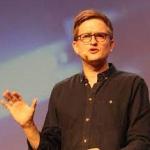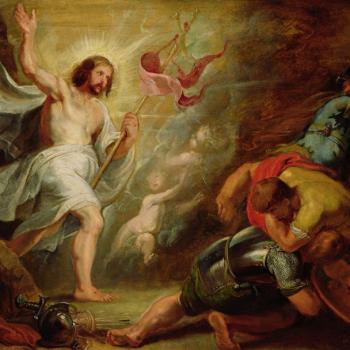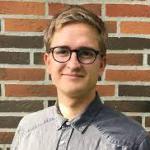What is Public Systematic Theology? Part One
Introducing Michael Agerbo Morch
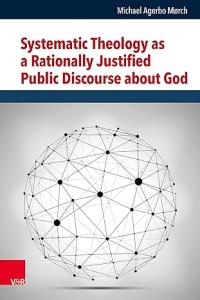
If you’ve visited my website, TedsTimelyTake.com, you will have noticed my stress on Public Systematic Theology (PST). Oh, yes, PST is conceived in the church. It is born within the circle of faith. Yet, I add that PST must be rigorously critiqued in the academy and then offered to the wider culture for the sake of the common good.
Perhaps I’ve found an intellectual confrere in the young University of Copenhagen theologian, Michael Agerbo Mørch. Mørch has just published his doctoral dissertation with Vandenhoek und Ruprecht, Systematic Theology as Rationally Justified Public Discourse about God. I like the word, Public, in this title. This term, Public, suggests that the theologian’s audience is not just the Church. It includes the university and the wider culture (Peters, The Voice of Public Theology 2023).
“The qualifier ‘public’ demands intersubjectivity with regard to methods, data, presuppositions, and results” (Morch, 2023, 265).
Addressing the Academy and the Wider Culture
For a theologian to speak meaningfully outside the community of faith to the academy or to the wider culture, what gets said must make sense to common human experience as well as shared canons of reason.
Is Morch willing to do this? Yes, indeed. Mørch describes the theological enterprise as scientific. Public systematic theology is a scientific discipline that is intelligible when measured by scientific criteria (Morch, 2023, 17). By science, of course, Morch means Wissenschaft in the German sense of obeying the shared canons of public reason.
“I argue that a modern research university must use language, methods, and concepts that are transparent to a broader field of researchers than a particular ideological group,” such as the Church (Morch, 2023, 30).
For Morch, that “broader” public is the university. Following David Tracy, I would add that beyond the university the PST should engage the wider culture (Morch, 2023, 59). Hence my rendering of PST: public systematic theology is conceived in the church, critically refined in the academy, and shared with the wider culture for the sake of the common good (Peters, The Voice of Public Theology 2023).
Public Systematic Theology is both Scientific and Coherent
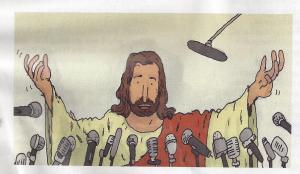
What makes systematic theology scientific and, hence, public? Coherence is Morch’s answer. Following Brazilian philosopher Lorenz Puntel and American philosopher Nicholas Rescher, coherence includes three components. First, systematic theology must be consistent—that is, without contradiction. Second, systematic theology must be cohesive—that is, having the optimal number of relations between the data of the theory (the more the better). And third, systematic theology must be comprehensive—that is, its scope should incorporate the greatest number of data points integrated into a single theological theory (Mørch, 2023, 28). Morch holds that scientific “testing concerns whole theories and that whole theories should be tested for their degrees of coherence” (Morch, 2023, 203).
My own way of cutting this pie is similar. Following Alfred North Whitehead on criteria for evaluating a metaphysical scheme, I believe systematic theology should be (1) applicable; (2) comprehensive; (3) logical; and (4) coherent. So, I feel somewhat at home with Mørch’s scientific criteria — especially coherence — for measuring the success of theology (Peters 2015, Chapter 2).
Public Systematic Theology versus Contextual and Constructive Theology
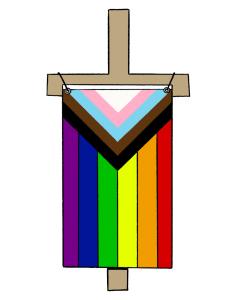
Along with Morch, I deem coherence to be essential to making theology systematic. But not everyone likes coherence. Today’s wave of constructive theology washes coherence away like a Purell dispenser washes Covid away.
Vietnamese Jesuit Anh Q. Tran describes the contextual diversity that the constructive theologian conscientiously attends to.
“The contextual approach to Christology is a method often favored by theologians from the Majority World or Global South. Following the postcolonial trends in the 1950s and 1960s, these theologians began to explore questions related to their Christological concerns. The Christ that many Majority World Christians received from the missionaries was too Eurocentric, and became less relevant in their new indigenization and social movements. New theological voices began to be heard around the globe, from Latin America to Africa and Asia. In Latin America, liberation theologians tried to understand Jesus from the reality of social economic inequality: Christ is a friend and a liberator of the poor.4 African theologians concentrated on viewing Christ from a cultural and familial lens: Christ is the life-giver, mediator, and leader par excellence.5 Working within diverse cultural and religious backgrounds, Asian theologians tried to make sense of the uniqueness of Christ in relationship to the other world religious figures and founders (e.g., Buddha, Krishna, Confucius, or Muhammad): Christ amid other Asian ways, truths, and lights.6 In these conversations, even the non-Christians joined in: there are visual and textual portraits of Jesus from Buddhist, Hindu, Muslim and Jewish perspectives.” (Tran, 2017)

The self-named constructive theologian collects and assembles this cacophony of hitherto forgotten voices rising up from marginalized groups such as previously colonized societies, LGBTQ+ or queer spokespersons, feminists, and such. Fearing that to systematize such voices would in effect silence them, this group of constructive theologians sets aside the coherence principle. The result for constructive theologians is the acceptance of incoherent theology.
“Methodologically constructive theology forgoes magnum opus, systematic accounts of Christianity, often seen as the ideal expression of systematic or dogmatic theologies. Its aims are open-ended, fallible, revisable imaginative constructions of what it means to be Christian in the world today, confronting contemporary crises and mobilizing against Christianity’s past mistakes and injustices. Constructive theology has grown to be the most prominent and important mode of doing progressive Christian theology today.” (Wyman 2017, 313)
Respecting and honoring hitherto marginalized voices expresses an authentic expression of the Christian heart. Yes, indeed. Yet, I believe the public systematic theologian — whether in Europe or any location — begins by including marginalized voices as a theological source but does not conclude there. PST then raises this source up to critical discourse analysis before proferring a constructive hypothesis. The constructive step requires coherence to measure analytical and rational progress.
Therefore, in contrast to those who call themselves ‘constructive theologians’, I (along with Morch perhaps) insist that the public systematic theologian aspire to coherence. A theology is coherent when what is said about each individual doctrine implies and requires every other doctrinal commitment. This meets the criterion of reason.
Looking ahead to Public Systematic Theology Part Two
In the next post on Public Systematic Theology, I would like to place Mørch‘s proposal for PST into juxtaposition with interreligious dialogue, comparative theology, religious studies, and Dialog, a Journal of Theology. Get ready to click.
Patheos ST 2013 What is Public Systematic Theology? Part One
Patheos ST 2014. What is Public Systematic Theology? Part Two
Patheos ST 2015. What is Public Systematic Theology? Part Three
Ted’s Books on Public Systematic Theology
Ted’s Videos on Public Systematic Theology
Public Theology for the Common Good
▓
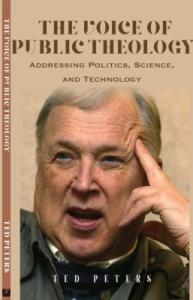
For Patheos, Ted Peters posts articles and notices in the field of Public Theology. He is a Lutheran pastor and emeritus professor at the Graduate Theological Union. He co-edits the journal, Theology and Science, with Robert John Russell on behalf of the Center for Theology and the Natural Sciences, in Berkeley, California, USA. His single volume systematic theology, God—The World’s Future, is now in the 3rd edition. He has also authored God as Trinity plus Sin: Radical Evil in Soul and Society as well as Sin Boldly: Justifying Faith for Fragile and Broken Souls. See his website: TedsTimelyTake.com.
His new 2023 book, The Voice of Public Theology, has just been published by ATF Press.
▓
References
Cattoi, Thomas, 2017. “Flawed Subjectivities: Cyril of Alexandria and Mahayana Buddhism on Volition, Sin, and Karma.” Buddhist-Christian Studies 37, 29-40.
Clooney, Francis X, 2010. Comparative Theology: Deep Learning Across Religious Borders. Oxford: Wiley Blackwell.
Mørch, Michael Agerbo. 2024. Systematic Theology as a Rationally Justified Public Discourse about God. Gottingen: Vanenhoeck & Ruprecht.
Peters, Ted. 2015. God–The World’s Future: Systematic Theology for a New Era. 3rd. Minneapolis MN: Fortress Press.
—. 2023. The Voice of Public Theology. Adelaide: ATF.
Tran, Anh Q., “Jesus Beyond the West: Christological Conversations in the Age of World Christianity,” World Christianity: Perspectives and Insights. Essays in Honor of Peter C. Phan. Maryknoll NY: Orbis, 2017.
Wyman, Jayson. 2017. “Interpreting the History of the Workgroup on Constructive Theology.” Theology Today 73:4: 312-324 doi.org/10.1177/0040573616669565.




